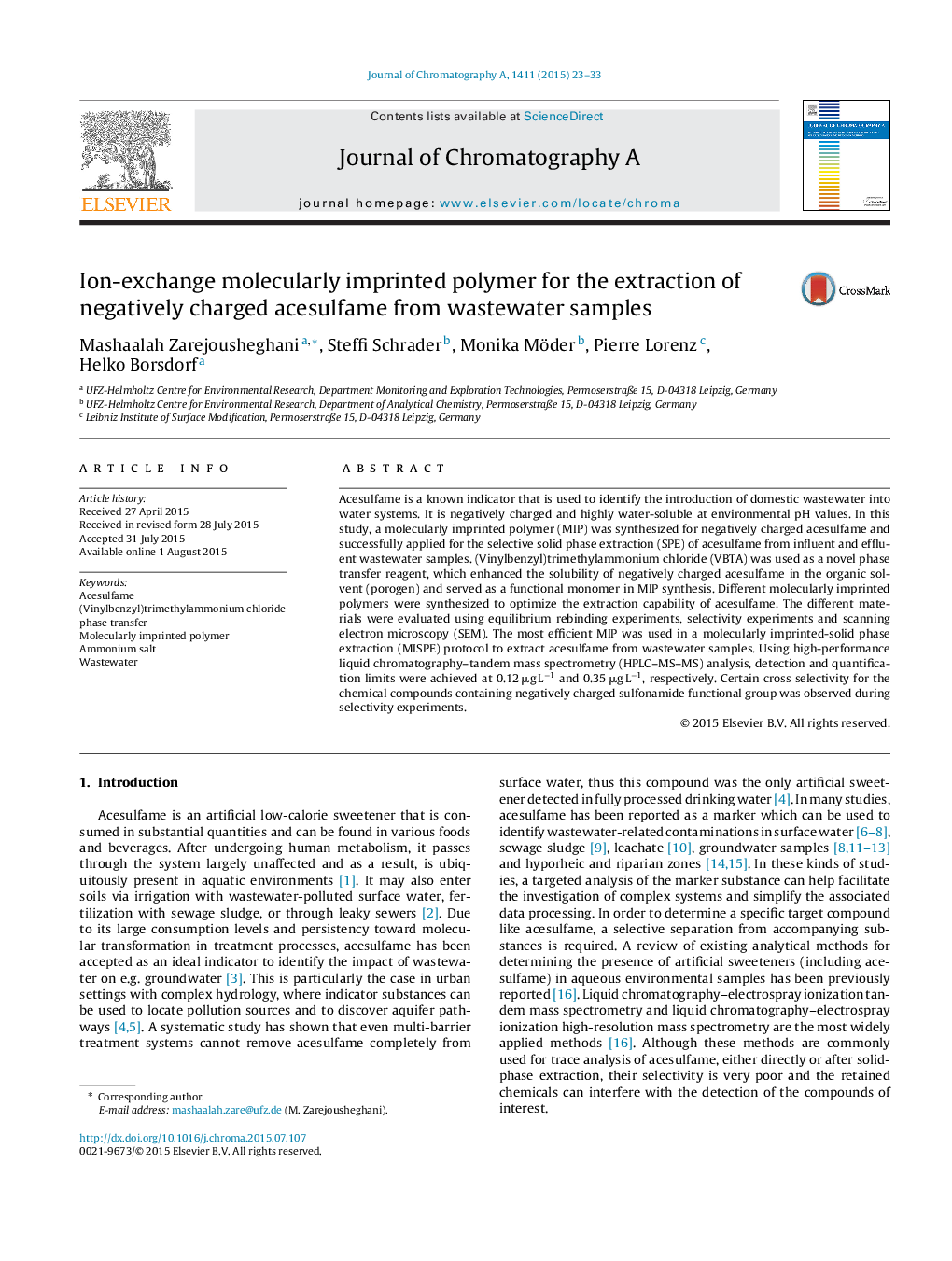| Article ID | Journal | Published Year | Pages | File Type |
|---|---|---|---|---|
| 7611496 | Journal of Chromatography A | 2015 | 11 Pages |
Abstract
Acesulfame is a known indicator that is used to identify the introduction of domestic wastewater into water systems. It is negatively charged and highly water-soluble at environmental pH values. In this study, a molecularly imprinted polymer (MIP) was synthesized for negatively charged acesulfame and successfully applied for the selective solid phase extraction (SPE) of acesulfame from influent and effluent wastewater samples. (Vinylbenzyl)trimethylammonium chloride (VBTA) was used as a novel phase transfer reagent, which enhanced the solubility of negatively charged acesulfame in the organic solvent (porogen) and served as a functional monomer in MIP synthesis. Different molecularly imprinted polymers were synthesized to optimize the extraction capability of acesulfame. The different materials were evaluated using equilibrium rebinding experiments, selectivity experiments and scanning electron microscopy (SEM). The most efficient MIP was used in a molecularly imprinted-solid phase extraction (MISPE) protocol to extract acesulfame from wastewater samples. Using high-performance liquid chromatography-tandem mass spectrometry (HPLC-MS-MS) analysis, detection and quantification limits were achieved at 0.12 μg Lâ1 and 0.35 μg Lâ1, respectively. Certain cross selectivity for the chemical compounds containing negatively charged sulfonamide functional group was observed during selectivity experiments.
Related Topics
Physical Sciences and Engineering
Chemistry
Analytical Chemistry
Authors
Mashaalah Zarejousheghani, Steffi Schrader, Monika Möder, Pierre Lorenz, Helko Borsdorf,
